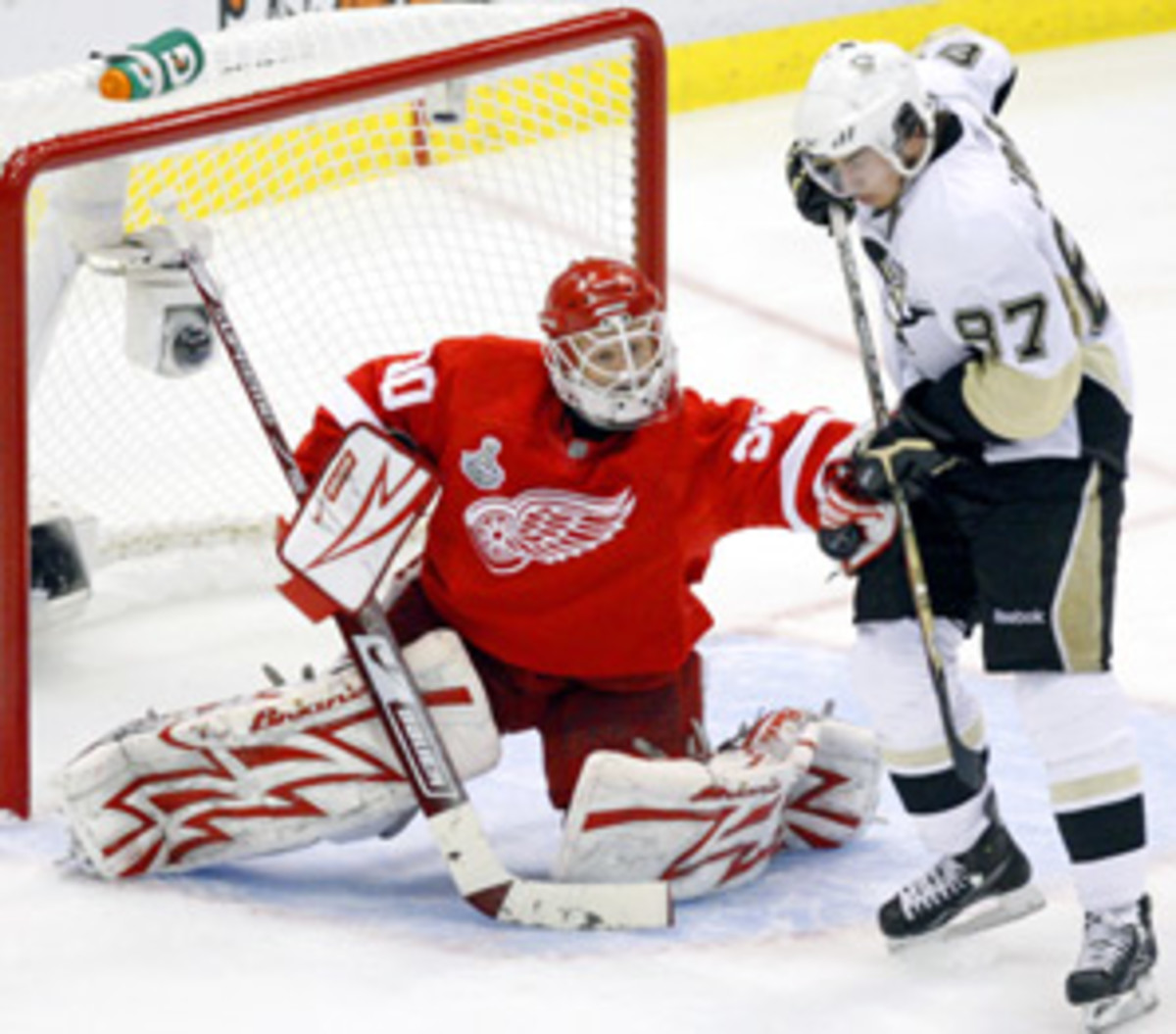Osgood helps Wings' Game 1 win seem almost routine


Overall, the Pittsburgh Penguins played a strong road game. Sidney Crosby and Evgeni Malkin were in fine form. The rest of the team was stout defensively and looked sharp offensively. So, why then, are they down 1-0 in the series?
The answer is in the details. The Penguins failed to capitalize on successive second-period power plays. The Pens looked tentative at best with the man advantage, sluggish at worst. They failed to maintain their first-period low-cycle proficiency, losing momentum due to the failed power plays. Then a lost face-off led to a turnover and yielded a late goal to give the Red Wings a 2-1 lad after 40 minutes.
The Red Wings scored first to open the game, with a crazy carom off the end boards on a shot by defenseman Brad Stuart banking in off goaltender Marc-Andre Fleury. Same thing on the game's second goal of the game. Johan Franzen swiped at the puck and Fleury inadvertently kicked it out of the air and in to his one net. That run of bad bounces continued in the third, with Justin Abdelkader getting his first career playoff goal.
Just like that, the Red Wings muted the Penguins' noisy start. Plus, the Pens didn't do any of the things they had to do to be successful: score first and force the Wings to chase the game, score on the power play or get a sound game in goal by Fleury. No matter what they did well, it was undone by what they failed to do. When they did get a look, Chris Osgood was in impeccable position to make the save. In fact, the Wings have used this formula several times this spring: Osgood blunts the opposition's early offensive thrusts and slowly but surely, his teammates take the game over.
Sure enough, the second half of this game was all Detroit. Henrik Zetterberg shut down Crosby. Malkin went missing. Nicklas Lidstrom was suddenly everywhere. After the Penguins looked so self-assured and mature at the game's outset, by the end it looked eerily similar to a year ago: the Red Wings found a way to win and the Penguins found a way to lose.
In the end, the Penguins were the first team to outshoot the Red Wings, yet Osgood's effectiveness made his 31-save performance look routine. Not that many of the saves weren't difficult, it's just that Osgood made them look easy. His counterpart, on the other hand, made everything look difficult. Fleury had trouble getting his bearings and played exactly the opposite of Osgood, whereby even the easiest of bids became an adventure.
Now, with the quick turnaround, as Game 2 is Sunday night, the Penguins must come up with an approach that is sustainable. The Red Wings certainly have one, and they followed it in this game. To top it off, Osgood is backing it all up with his superb goaltending -- a level of excellence that is just a few wins from Conn Smythe status.
